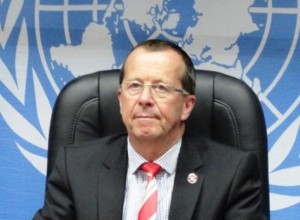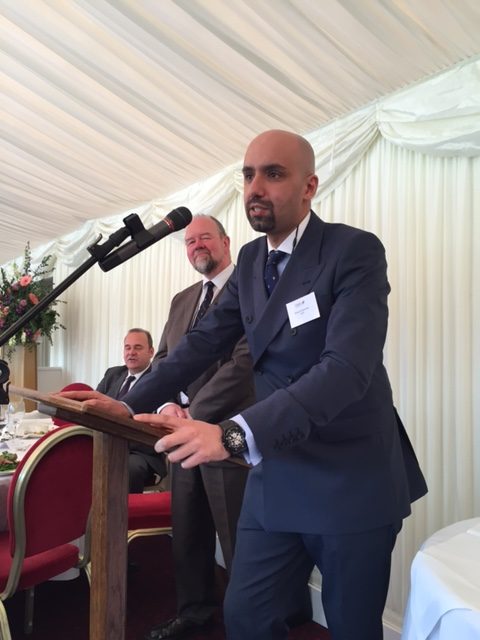By Hadi Fornaji.

Tripoli, 13 July 2016:
To overcome the key sticking point in the Libya Political Agreement, the command of the armed forces could be decentralised, UNSMIL chief Martin Kobler has proposed.
But his idea, explained today to AP in Cairo, may not be favoured by Armed Forces Commander in Chief Khalifa Hafter, who in recent days has repeatedly turned down invitations to meet him.
Kobler’s plan is that there should be military councils formed for the west, east and south of the country. The proposal will be closely debated on Saturday and Sunday when members of the Libyan Political Dialogue reconvene in Tunis.
The impasse that has stopped the House of Representatives voting on the Government of National Accord of prime minister-designate Faiez Serraj has been Article 8 of the Libyan Political Agreement. This would change the Libyan Constitutional Declaration by moving ultimate control of the armed forces, along with the Central Bank, National Oil Corporation and Libyan Investment Authority, from the president of the HoR to the nine-member Presidency Council headed by Serraj.
Kobler said today that although the GNA was backed strongly by the international community, it lacked national legitimacy.
“There is political stalemate” said Kobler, “and the security is not good and there are grave humanitarian problems in the country”.
Kobler said he was looking to the roadmap set out by the LPA which envisaged the GNA steering Libya through political transition for at most two years by which time a new constitution would have been written and approved. After than elections would follow.
However Kobler appears sensible of the fissiparous risks of having three different army structures. He said today that he still favoured a united armed forces. “You can’t have a united Libya with two or three armies” .
It is unclear why Hafter has snubbed recent repeated invitations to talk to the UNSMIL chief. It would seem certain that he agrees with Kobler’s basic proposition on the desirability of unity but believes that the country’s unified armed forces ought to come under the command of the HoR president and by extension, of himself.
One diplomat commented this evening that while attractive in the short-term in terms of finally winning HoR approval for the LPA and the GNA, the idea of three separate military councils was potentially a long-term recipe for conflict.








